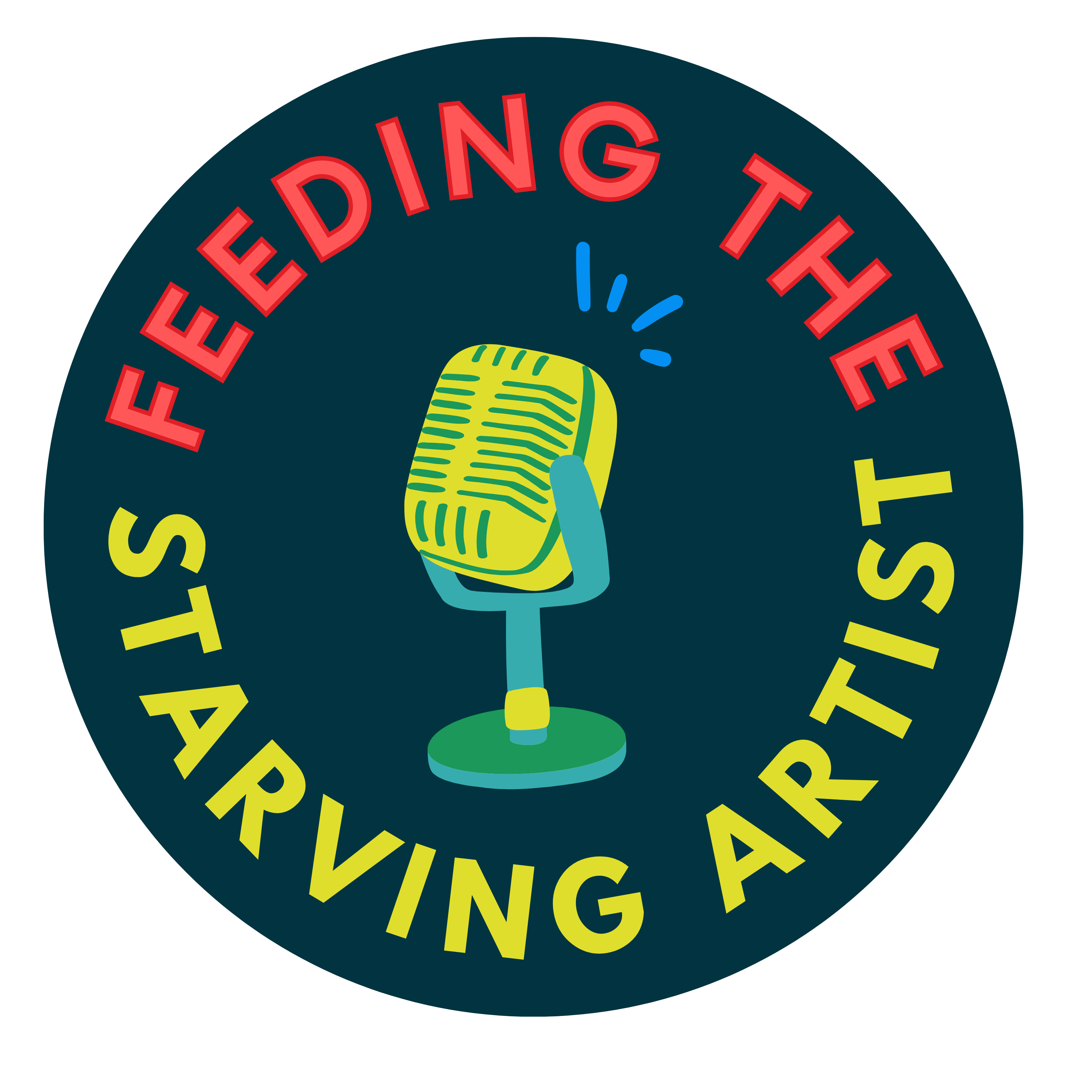Starving Artist – NOT!
Rick Goodstein and Ron McCurdy
Dreaming of Becoming a Professional Artist/Musician

Becoming a Professional Artist is very difficult. Imagine that you are a high school senior and want to go to college to major in your specific area of arts interest. It might be as a musician, visual artist, dancer, actor, technician, etc. You are someone who dreams of pursuing a fulfilling and sustainable career in the arts. (For those of you who plan to become full-time teachers – thank you! We need great arts teachers.)
We are talking to those of you who dream of a career being on-stage, backstage or monetizing your creativity in some fashion.
You are committed to take the plunge as an arts major. You’ve had successes, or found a passion, that drives you to pursue your dream as a professional artist past high school. It’s a drive that can’t be stopped. You’ve caught the bug, have a hunger for your art, and have overcome the fears of self-doubt, and even the possible objections of friends and/or family. There’s no way you can’t follow your dream.
There’s also no doubt you know how difficult it is to “make it.” You know that majoring in business, engineering or a STEM field would likely guarantee entry into a career; however, a voice in your head can’t let go of your dream. And, you understand the tremendous cost of any college degree, and especially a degree in the arts that many question the return on investment.
Despite the long odds, despite others who might question your choice, and despite your own fears, you cannot fight the urge. You’ve found your passion; you’ve found your calling and; hopefully, you’ve also found a support group who understands your passion. Indeed, you might be blessed with parents and/or friends give you their full support.
So why do so many college arts majors end up in an alternate career rather than making a working living as a professional artist?
We suggest that the traditional college arts curricula may not be relevant for student success in today’s arts economy. This curriculum typically focuses on skill development, history of your art, theory, and an assortment of studio, general education, and elective classes. The traditional curriculum has developed, slowly, over decades as informed by the needs of prior generations. With a collective of 80 years of experience, we can say without hesitation, that change in higher education moves at a snail’s pace.
The curriculum is often controlled by faculty who insist on a “doing as I did” mentality. Sadly, this antiquated thinking does not serve students who are planning a career in today’s vibrant arts economy.
Does a 120-credit hour curriculum that might include 4 years of music theory, required classes in lab sciences or math, or other courses that are not only antiquated, but sadly irrelevant to helping you pursue your dream?
Professional Artists in the 21st Century
Today’s emerging artists must know how to market themselves, understand the details of curating and showcasing your art via social media, how to form an LLC, understand tax issues as an independent contractor, and other contemporary skills that well beyond the traditional arts curriculum.
In our thinking, a sea change in arts performance curricula, student advising, and the creation of cross-disciplinary opportunities for arts majors is not only necessary but past due. This paradigm shift will not come easy as many traditionally based conservatory-type arts programs are highly resourced recruitment machines.
Faculty and arts departments dangle significant scholarships to attract the highly qualified and skilled arts students to their universities. Although financial aid often discounts the overall cost of an arts degree, students are still at the mercy of a standardized coursework that is not preparing you for the harsh realities of a sustainable career in a 21st century arts economy.
The other pervasive, systemic problem in today’s arts higher education model is the overpopulation and crutch of graduate school. Professional jazz bassist, John Clayton, refers to the continuation of professional arts education as “fear-based education.” This is, by John’s definition, when a student completes an undergraduate degree, and then decides to continue with a master’s degree because they seemingly have no other options.
John’s position is not anti-grad school, but he insists that if a student decides to attend graduate school it should occur because the decision was well-vetted and not as an only option. Without training in the necessary skills to sustain a career in the arts, this “fear-based education” model thrives. This pattern sometimes even continues when this same student completes a master’s degree and decides to pursue a doctoral degree.
It’s past time to make significant changes to the arts curriculum. There are; however, some notable exceptions, and we will explore in an upcoming blog. Faculty and administrators at these schools understand that the future of arts education needed change and have done something about it.
In the meantime, hold off on that graduate school application!

